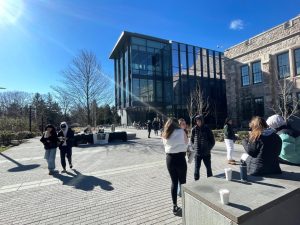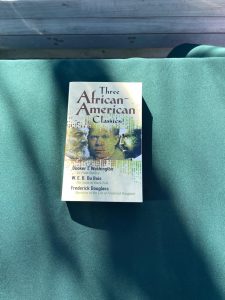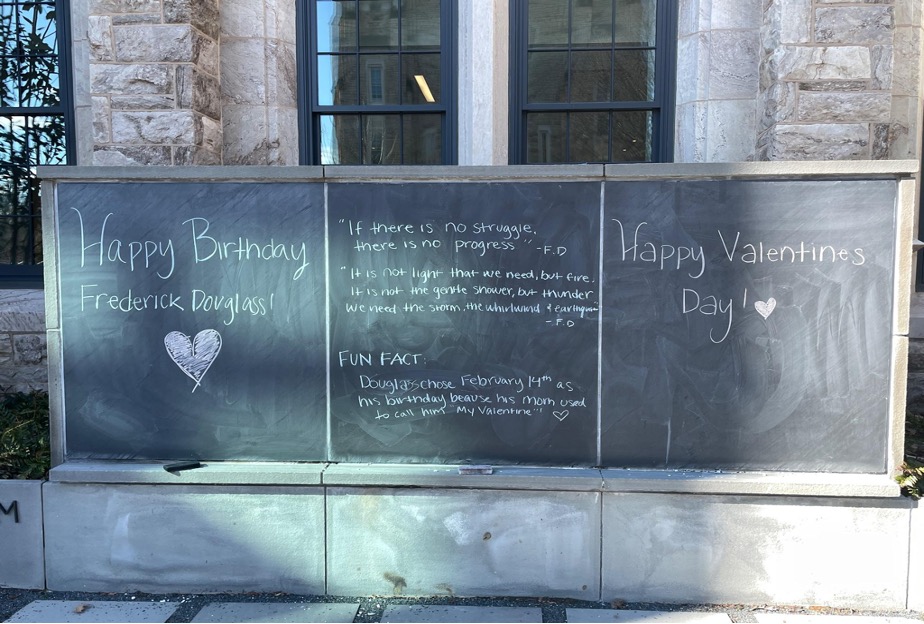The English Department, African and African American Studies, and the Center for the Humanities collaborated to celebrate Frederick Douglass’ birthday on Feb 14. Douglass Day examines the accomplishments of Frederick Douglass and provides students and faculty an opportunity to connect the past to its relevance in our lives today. English Teaching Professor Dr. Sondra Guttman says Baltimore is a great place to explore his life, as Douglass resided here.
“I’ve been very much inspired to use our location as a basis to spread the word about his life and how his words can empower and inspire people still today to realize their potential,” Guttman said.
Douglass Day is much more than just celebrating and learning about American history, it also examines Frederick Douglass’ life and the implication of systems of power within society at the time. Dr. Guttman says Frederick Douglass’ work as an advocate demonstrated how change can be made that ripples across society and breaks down systems of power.

“His story is aimed at an audience who is kind of on the fence about this institution. They are not sure. They’ve heard maybe it’s good for the country. It’s a necessary institution. How are we going to dismantle it? He’s answering these kinds of questions for them. He’s showing them that the system can be changed, that they have the information and the ability to be a part of that change.”
Division spreads across the country as certain states have legislated anti-critical race theory laws that restrict or outright ban Black history from being included in educational curriculum. Dr. Rodney Parker says as an enslaved man, Douglass is an important figure because he makes us confront our past atrocities and how we need to take accountability for our history.
Parker said, “It is an ongoing question of what America has not addressed about their history. The ways in which they have not stepped up to the plate to say ‘this is a part of our history’. In the current day, some people are trying to erase history and say that this is not important or it did not really happen, or slavery was not that bad.”
In January, the Loyola Presidential Task Force published a research report on Loyola’s connections to slavery. Dr. Parker says that Loyola made strides in confronting its history and hopes that we continue in the right direction.

“I think we are in a good time at Loyola. I can sense the energy on our campus. In general, I think we are at a pivot point though. What are we going to do with this moment? I’m very excited about what I’m sensing. I just don’t want us to pivot back to where we were before,” Parker said.
Douglass Day is just one of the many opportunities on the Evergreen campus to celebrate Black History Month. Mariah Smith ‘27 says that it’s important to acknowledge Black figures and their contributions in the U.S..
Smith said, “Especially since we go to a PWI, predominantly white institution, I think it’s important for those who aren’t black to be educated on Douglass’ impact on the world.”










































































































